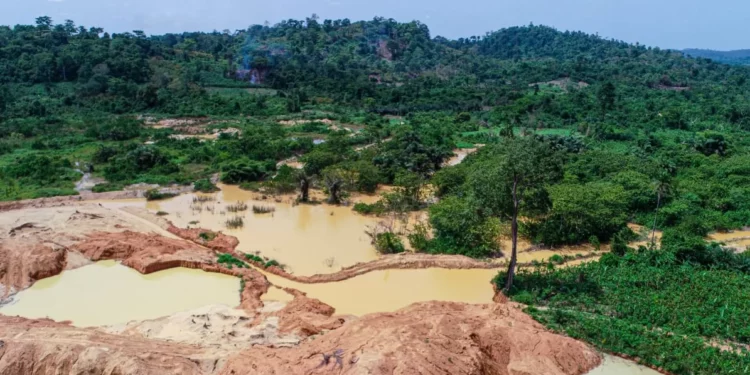Ghana-Cote d’Ivoire High-Level Delegations Meet to Address Environmental Impact of Illegal Mining on Shared Water Resources
High-level delegations from Côte d’Ivoire and Ghana have convened in Accra in a bid to address the pressing issue of illegal small-scale mining, which is posing severe risks to shared transboundary water resources, forest cover, and agricultural land.
The talks, co-chaired by Ghana’s Minister of Sanitation and Water Resources, Cecilia Abena Dapaah, and Minister of Lands and Natural Resources, Samuel Abu Jinapor, aim to craft sustainable solutions to the environmental damage caused by illegal mining activities—damage that has significant cross-border implications.
Central to the discussions is the pollution of the Bia and Tano rivers, key water sources for Côte d’Ivoire. The degradation of these water bodies, driven by Ghana’s illegal mining, has disrupted potable water production in the neighbouring country and contaminated the Abidjan Lagoon.
Côte d’Ivoire, which relies on these rivers for hydroelectric power, faces further strain, with two of its dams on the Bia River now at risk due to rising pollution levels.
Mr Jinapor emphasized the gravity of the situation, noting that Ghana’s natural resources, particularly its water bodies, are under constant threat.
“The President is deeply concerned, and his administration has been waging an aggressive campaign to tackle illegal mining,” he said, highlighting that the government is employing a dual strategy combining law enforcement and sector reform.
Leading the Ivorian delegation, Minister of Water and Forests, Laurent Tchagba, underscored the urgency of finding lasting solutions, particularly as Côte d’Ivoire continues to grapple with pollution affecting both water supply and agricultural productivity.
“This is a critical issue for us. Despite previous meetings, the challenges remain,” Mr Tchagba remarked, calling for swift, actionable outcomes.
The bilateral engagement is the latest in a series of efforts dating back to 2017, when a joint technical committee recommended a coordinated approach to combating illegal mining in the shared Tano-Bia River Basin.
Yet, as pollution levels rise, both nations are now confronted with the necessity of implementing concrete measures to protect their water resources and safeguard regional stability.








